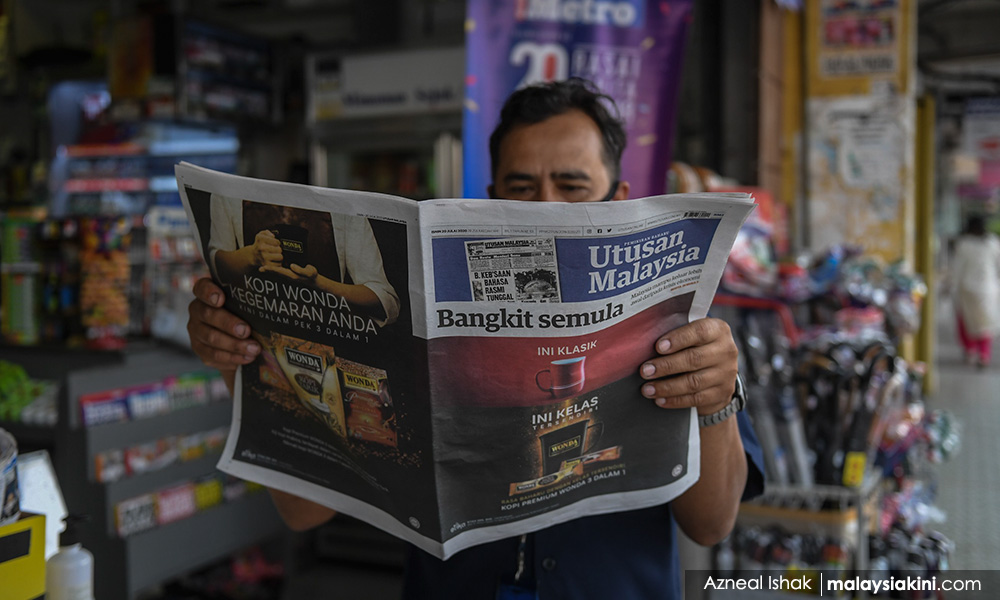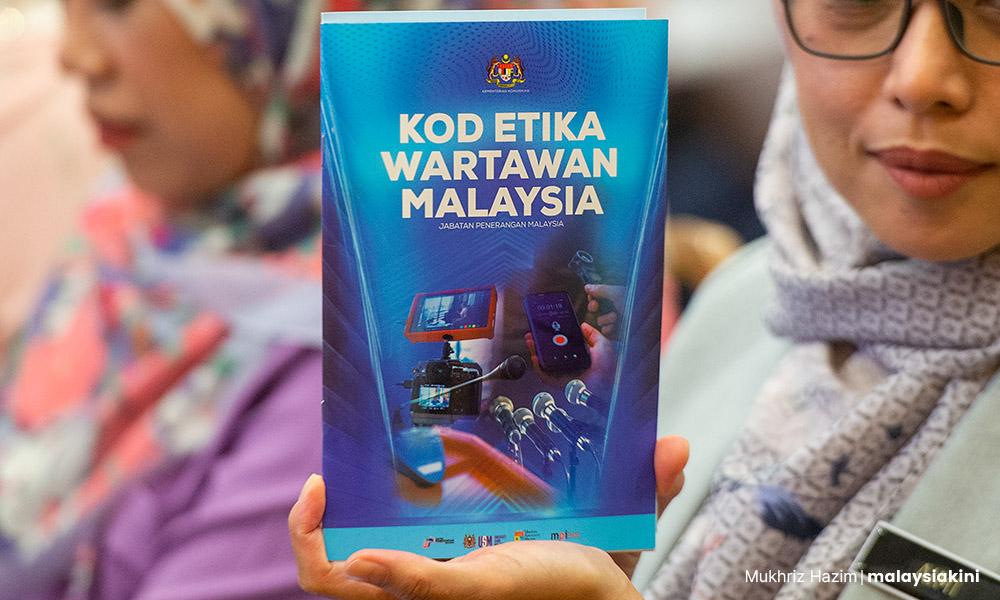The Information Department has issued media cards with significantly shorter validity for multiple online media journalists from various news agencies.
Several online journalists received media cards that only had six-month validity, while others, like several Malaysiakini journalists, were given cards with one-year validity.
This is significantly shorter than the standard two-year validity for media cards issued to local media and contradicts the policy stated on the Information Department website.
The shorter validity period for media cards seems to affect journalists working for
several online outfits, who applied to renew or made fresh applicants for media cards starting this year.
Checks by Malaysiakini found they affect both contract and permanent staff of various online news agencies.
However, print media journalists who applied within the same period received media cards with two-year validity, checks with multiple print media found.

One such online organisation whose journalists were issued cards valid for only six months is news website Twentytwo13, which started operating in 2018.
“Yes, our latest media pass is only valid for six months. Previously, it was two years,” said Haresh, editor of Twentytwo13.
“We intend to meet the Information Department director-general and hope to get a clarification soon,” said Haresh, who is also the deputy president of the National Press Club of Malaysia.
Malaysiakini also understands that the Information Department has halted the issuance of media cards to party mouthpieces like Suara Keadilan, Roketkini, Harakah, and Umno Online.
It is learnt that this is because the Information Department is updating its policy for media card issuance to these types of organisations.
Contacted on the matter, Information Department media and communications section director E Sivabalan said he is not authorised to make a media statement on the matter.
At publication time, Malaysiakini’s email to the department’s director-general, Mohd Sukari Ab Hamid, sent last Friday has yet to be answered.
‘Power move’
Media freedom advocacy group Gerakan Media Merdeka (Geramm) said the lack of transparency on the issue of media accreditation is problematic and without due justification can be seen as an additional means of controlling the media.
This is especially since changes to the terms were not communicated to the stakeholders.
“If (the Information Department) is not doing it transparently, it would be seen as a power move. It would be seen as a form of control that will affect the media company or journalists’ ability to perform their tasks,” Geramm spokesperson Radzi Razak told Malaysiakini.
This issue comes on the heels of criticism against a recently launched Code of Ethics for the media set by the Information Department.

The department said it will use this code of ethics to decide who gets a media card and who doesn’t - a move that critics say flies in the face of self-regulation.
The new code says nothing about different validity periods for journalists depending on the medium of reporting.
Media cards are essential for journalists as they provide access to key events like press conferences at Bukit Aman and the Prime Minister’s Office or parliamentary sittings.
Arbitrarily deciding who gets a media card and for how long is reminiscent of the grip the government has on print media via the Printing Presses and Publications Act 1984.
Under the PPPA, print media must have a government permit to publish and the decision to revoke the permit is the sole discretion of the Home Ministry.
This forces print media to toe the line to ensure their permit is not revoked - a chilling effect that could happen to online media if media accreditation is issued on a discretionary basis.
Over the decades, the PPPA has been used to curtail media freedom with editors-in-chief or media owners summoned to the Home Ministry with show-cause letters.
The most notable use of the PPPA to infringe media freedom was in in 1987, when four newspapers had their permits revoked and were forced to shut down. - Mkini




No comments:
Post a Comment
Note: Only a member of this blog may post a comment.